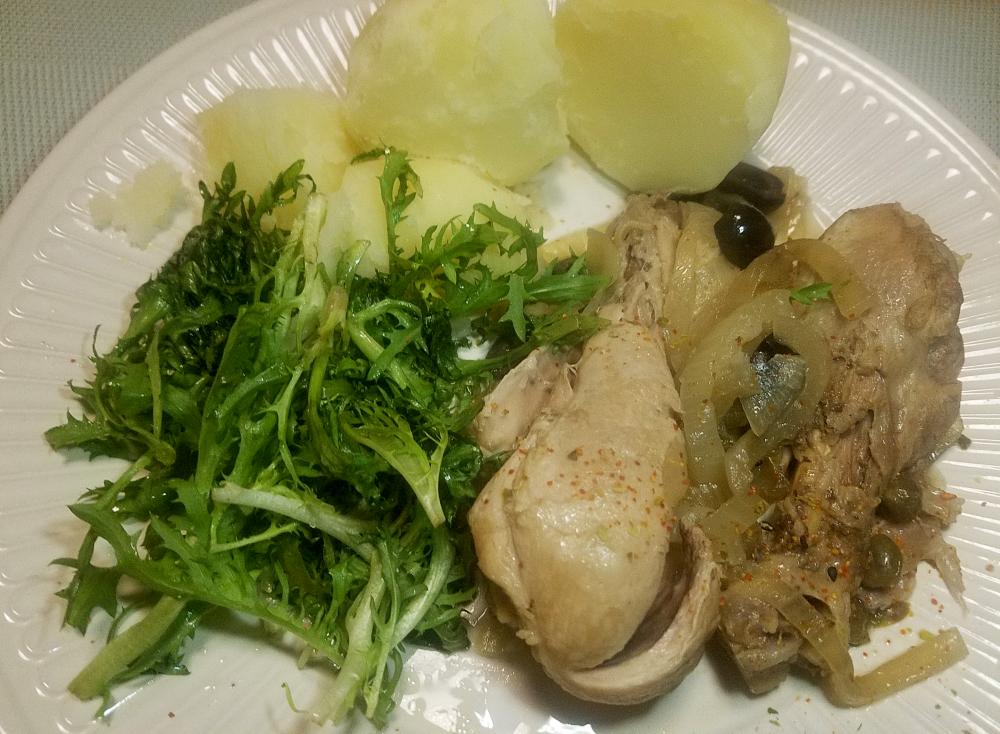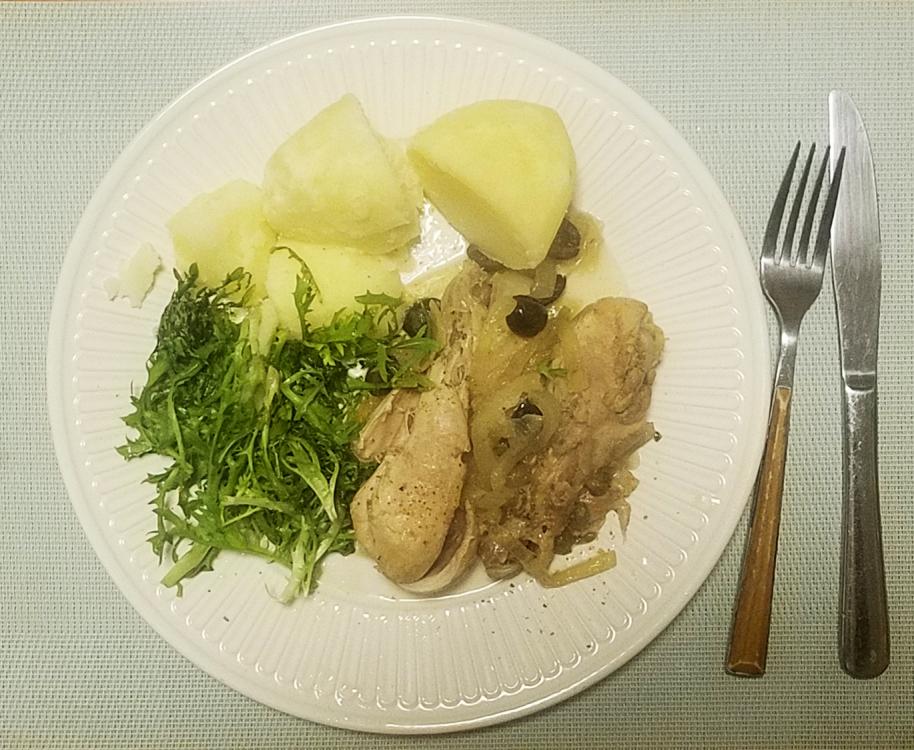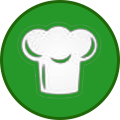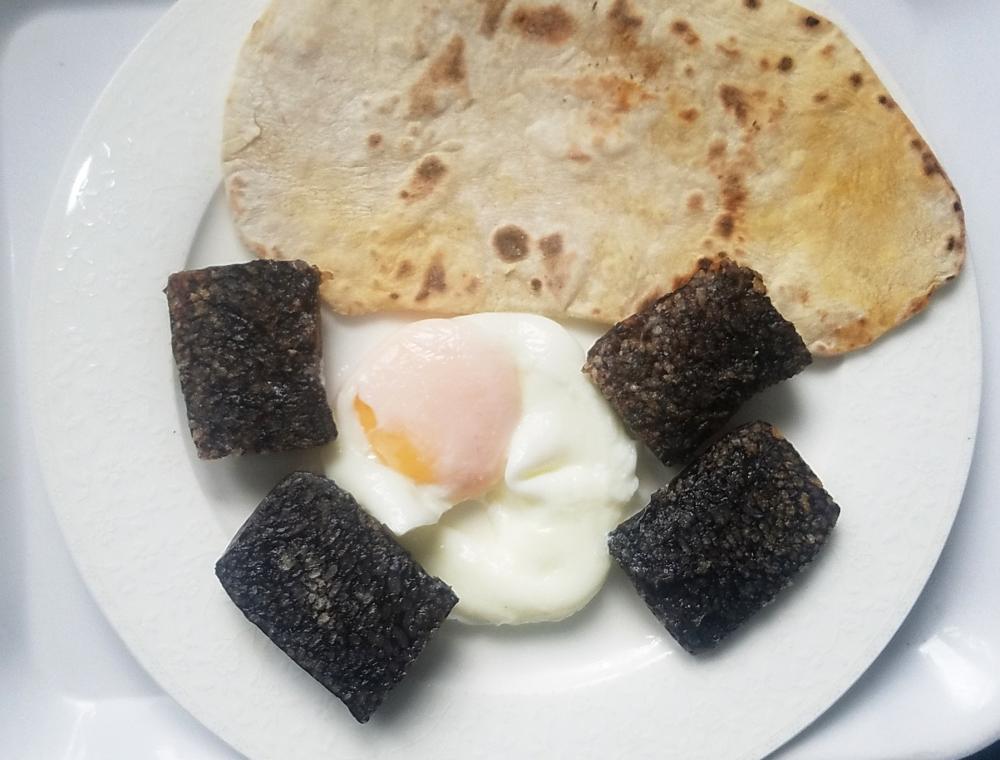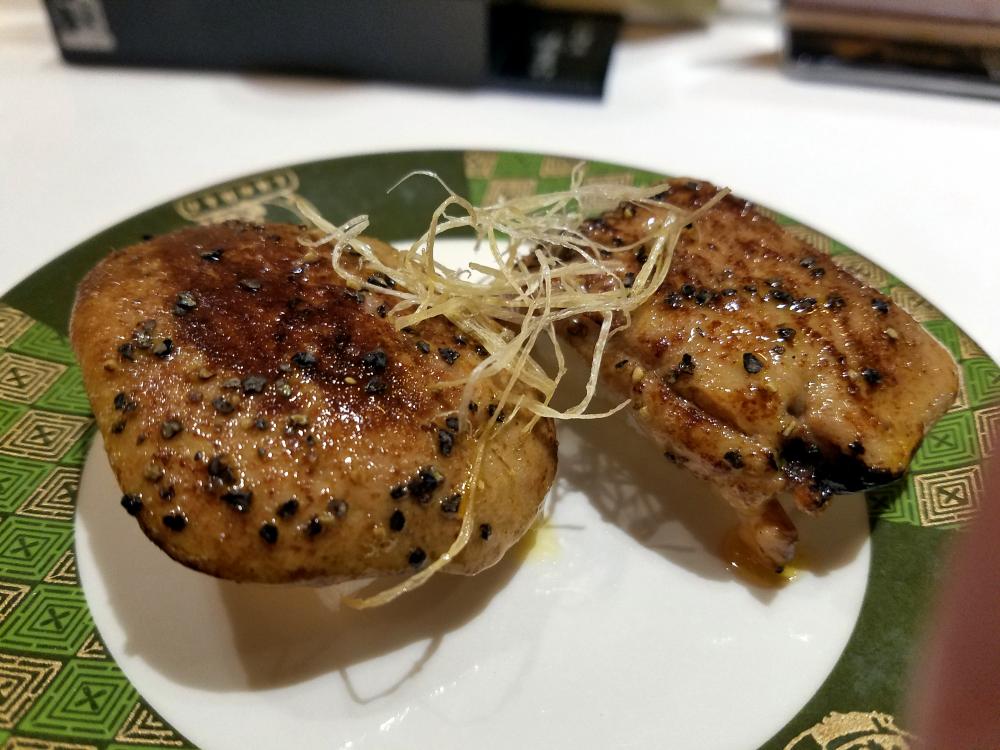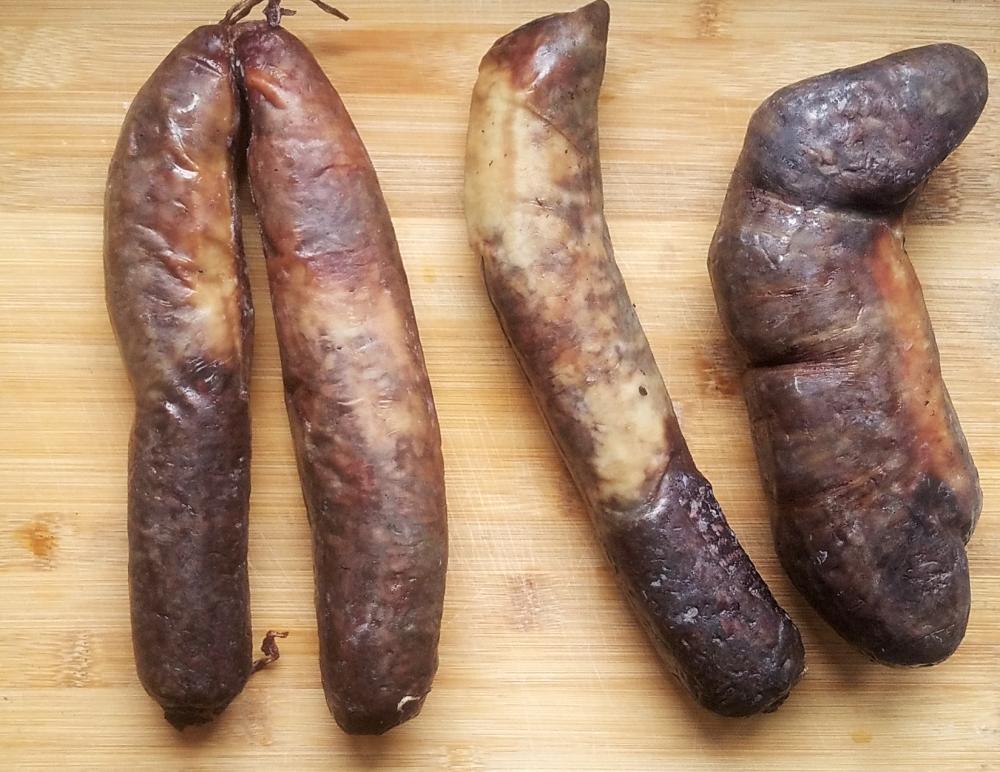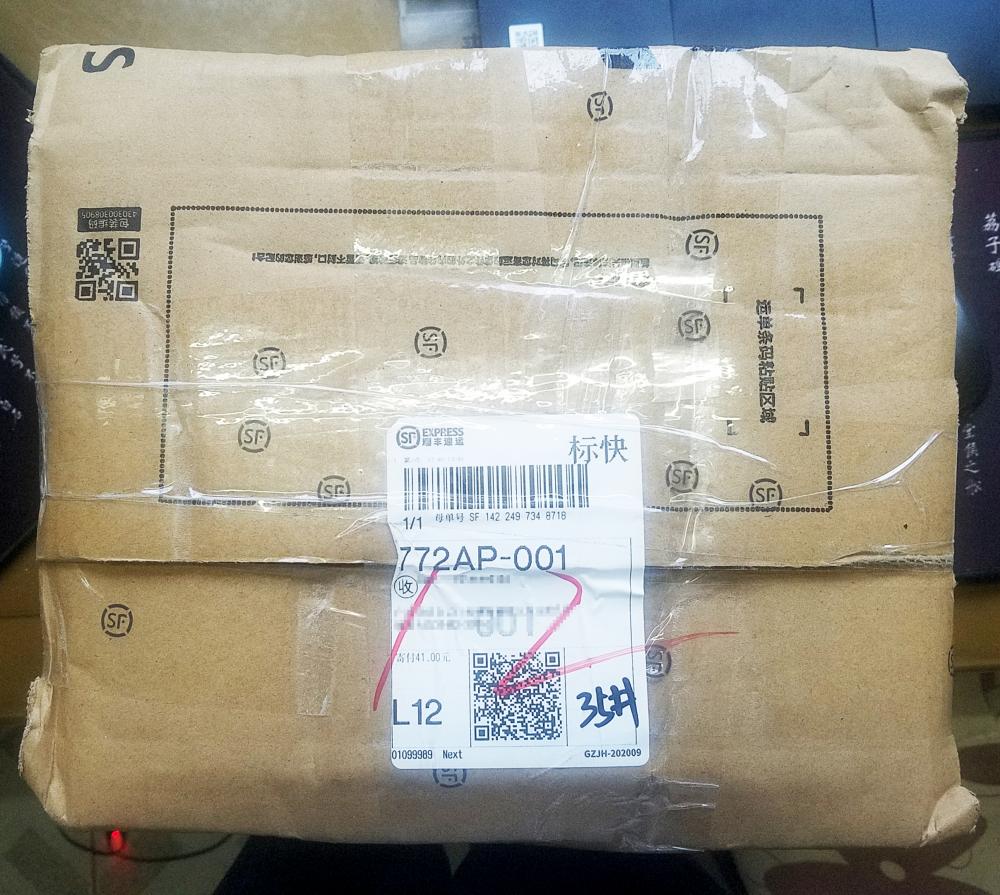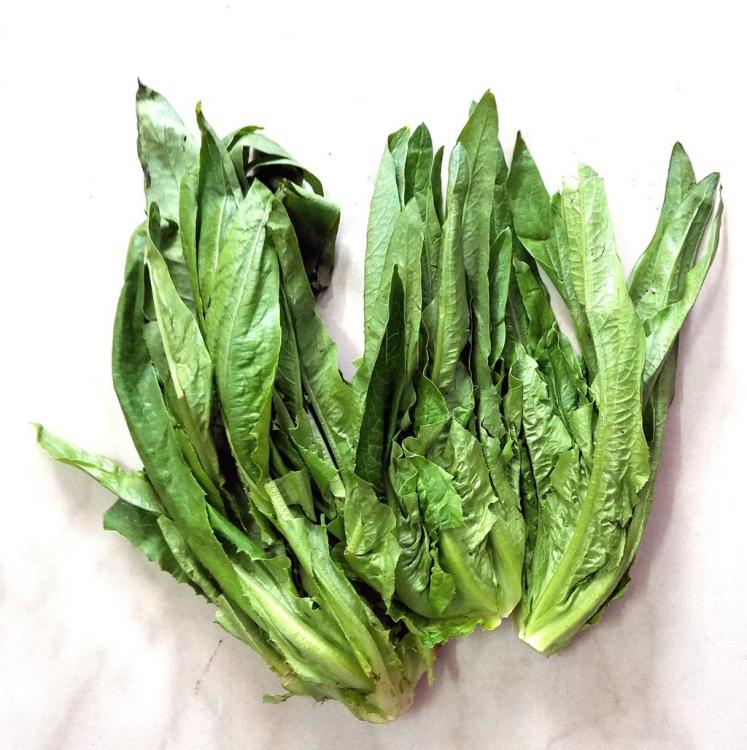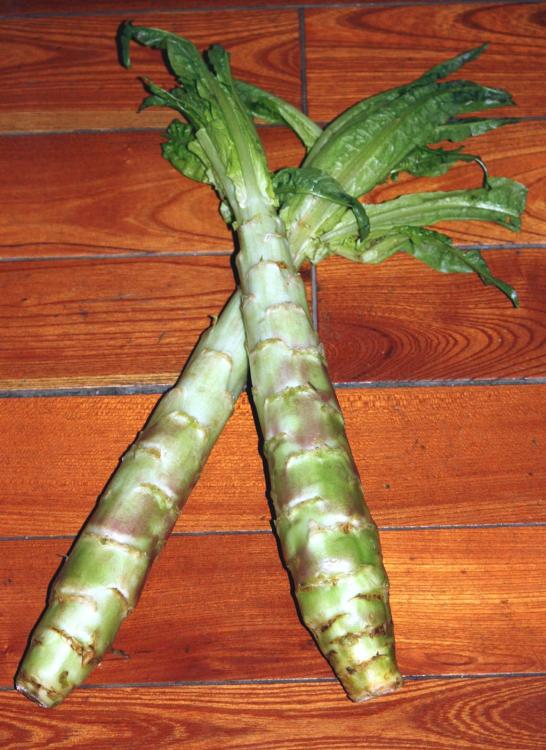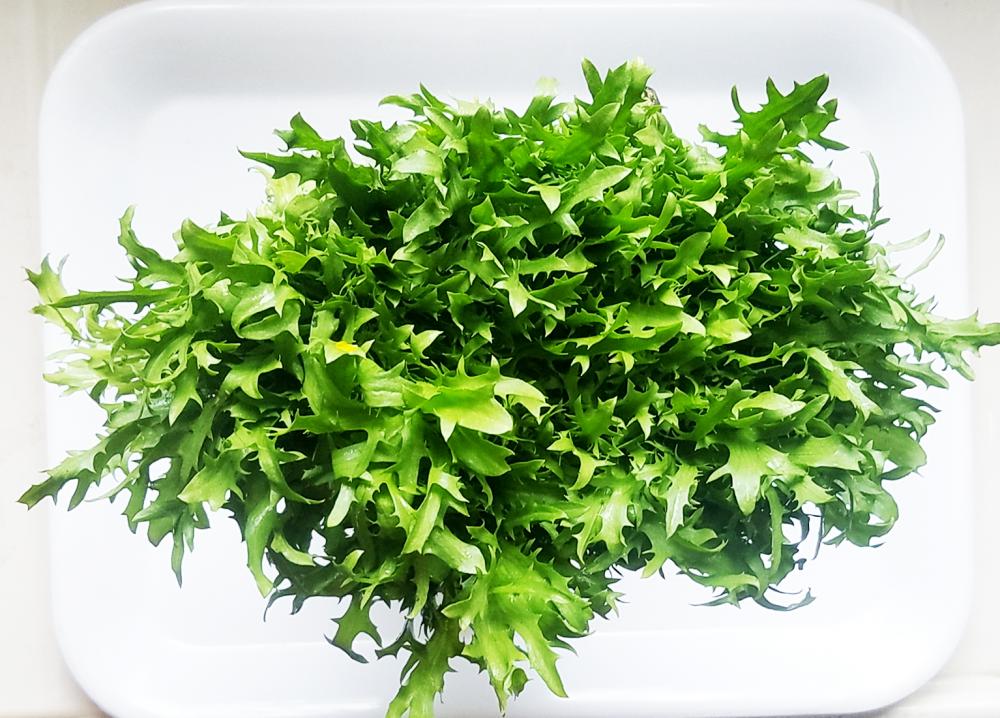-
Posts
16,813 -
Joined
-
Last visited
Content Type
Profiles
Forums
Store
Help Articles
Everything posted by liuzhou
-
My main camera comes with a 610 page instruction manual. Not sure how big the help pages are - massive. Then there are the separate manuals for lenses!
-
Doubanjiang (豆瓣酱) is essential for Sichuan cooking. The sweet soy bean paste is not a substitute. The Zhenjiang vinegar you bought is Chinkiang black vinegar. 'Chinkiang' is the old transliteration which only America uses now! I don't know that brand. I'd try to find some aged more than three years (the minimum). Mine is aged for six years (marked 六年陈). I'm always happy to give names in Chinese, should you want to print them out and take to the store to help find those items not labelled in English.
-
Braised chicken legs with onion, garlic, black olives, capers, white wine. Finished with a sprinkling of shichimi togarashi. Served with boiled spuds and wilted endive.
-
Another version: A priest, a pastor and a rabbit walked in to blood donation clinic. The nursed asked the rabbit: "What is your blood type?" "I am probably a type O" said the rabbit.
-
After receiving an unexpected gift, lunch/brunch plan changed. Hunan blood sausage with poached egg and flatbread.
-

Wanted: potatoes suitable for potato salad
liuzhou replied to a topic in Eastern Canada: Cooking & Baking
Not a silly question. I was just confused as to why I was suddenly an authority on potatoes! I have eaten Jersey Royals, but as you note, a very long time ago. Maybe 50 years! I remember them being special, but can't really elucidate beyond that. Sorry. -
I recently had goose liver sushi - two ways. Seared liver on rice (honest!) Roast Goose Liver and Mango
-
and again 10 am, someone knocked on my apartment door. Most unusual. A young lady was standing there with a box. I explained I wasn't expecting anything, but on examining the label, found it was definitely addressed to me. I'm not expecting any nasty surprises (I don't think I've upset anyone who knows my address!) so I accepted it. Delving through the packaging I found an polystyrene insulation box with two ice packs and a vacuum sealed bag of unidentifiable something. Closer inspection revealed these. Four beautiful, fat, blood sausages from Hunan! Happiness overflows! Dinner plans re-thought! Thanks Ms, Chen! (She of the okra and scissors.)
- 667 replies
-
- 11
-

-

Free sushi for yourself and 5 friends - just change your name!
liuzhou replied to a topic in Food Media & Arts
That wouldn't work round here. Although 鲑鱼 (guī yú) is the correct technical name for salmon, most people use 三文鱼 (sān wén yú). Salmon is all imported* and 三文 (sān wén) is the nearest they can get to pronouncing 'salmon'. 鱼 (yú) means 'fish'. So, you'd have to change your name to 三文 (sān wén) for free sushi. * It was mostly imported from Norway, but they fell out with Norway about some trivial political disagreement. Now it mostly comes from Scotland. -

Free sushi for yourself and 5 friends - just change your name!
liuzhou replied to a topic in Food Media & Arts
...but did he like sushi? -

Wanted: potatoes suitable for potato salad
liuzhou replied to a topic in Eastern Canada: Cooking & Baking
Are you sure you wanted to direct the question at me? I know nothing about Warba potatoes and have never contributed to this discussion. We only get one type of potato here. Not a good one. -
Chinese banquet tables are always circular. No corners. Or head. I can use either my right or left hands; sometimes both simultaneously.
-
The translation from Chinese to English is correct. 均衡器 does mean 'equalizer'. But we don't have the Japanese original, so hard to say. Your theory is as good as any I've heard. Well, it's the only theory I've heard, but it's a good one.
-
Not particularly hard to clean. No more so than a pizza wheel. No one in in China is allowed to be left handed*. It messes up communal dining when using chopsticks and 20 people are crammed round a circular table. Also, hand writing in Chinese suffers even more so than in English. Characters are designed to be written right handed. *Only a slight exagggeration, but very, very few people are left-handed. It is forced out of them, as it was in western countries until recently. I used to be able to estimate how many left-handed students would be in an examination hall when I was in academia. I was usually correct within one or two - even if I gave my 'guess' before the students actually arrived. It was always 10%. In China, less than 1%.
-
I agree.
-
It could have been camel's liver, I suppose. I eaten camel, but not its liver. All I can get here is pig and beef*. Of the two I much prefer the former. Haven't had calves' liver in decades. It got rarer and more and more expensive in London, as I recall. No sheep round here. * Of the mammals. Chicken liver is plentiful. Duck slightly less so.
-
I didn't mean I thought it was liver from Egypt. I wondered which species - beef, pig, lamb? So beef. Not my favourite, unless it's calves'.
-
No. The scissors are made in Japan, so we are seeing a translation from Japanese to Chinese to English. Many pitfalls en route.
-
At the leaf end? Or the root? I do sometimes see them peeled and de-leafed and de-rooted, but more often sold intact. The leaves are also sold seperately as 油麦菜 yóu mài cài.
-
There are literally thousands. I don't know which ones are exported. Most probably few. No idea.
-
It looks good. But then I always think liver looks good. I've never eaten Egyptian liver though. Which animal?
-
Lee Kum Kee is the Heinz of Chinese cuisine. Bog standard sauces. There are much better brands. Guilin (an hour from here) people laugh at LKK's Guilin Chili Sauce. The centre one I don't know so well, but both companies are Hong Kong based (Koon Chun was founded in 1928; LKK in 1888), although I know LKK make their sauces in mainland China where the company started.
-
Another new arrival in these parts. 苦菊 (kǔ jú) - literally 'bitter chrysanthemum'; Cichorium endivia; endive. I have no notion how the locals use it (I'm willing to bet the locals don't know either), but they probably stir fry it with garlic. If I find out otherwise, I'll edit.





